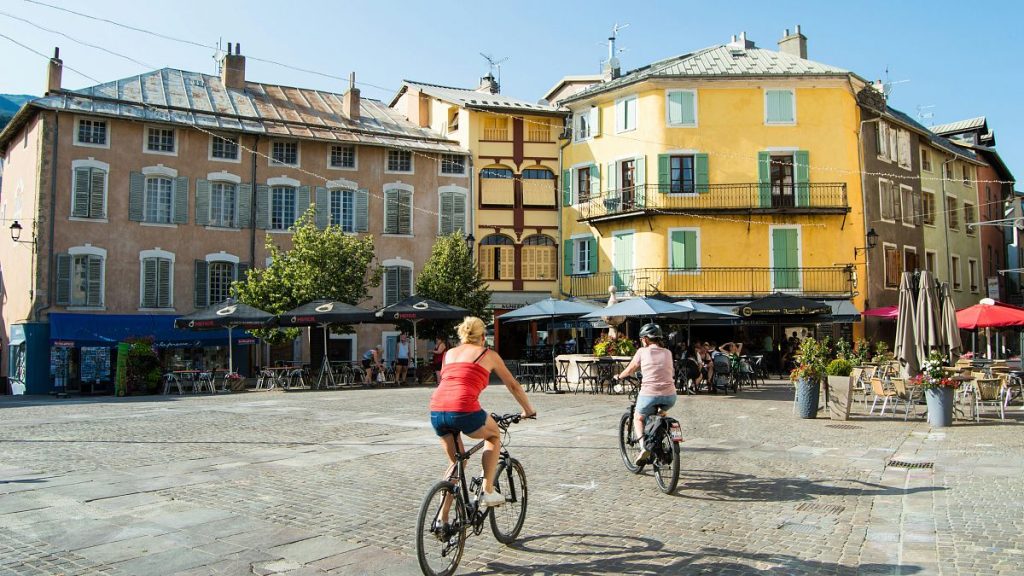The rising tide of tourism, while economically beneficial, has presented significant challenges for destinations worldwide. Overcrowding, environmental damage, and strain on local resources have necessitated interventions, ranging from punitive measures like fines for disruptive behavior to more innovative approaches that incentivize responsible tourism. These incentive programs, emerging in various forms across the globe, aim to reward visitors for engaging in sustainable practices, fostering a symbiotic relationship between tourists and the destinations they visit. By offering tangible benefits for eco-conscious choices, these initiatives seek to transform tourist behavior, promoting a more harmonious and sustainable travel experience.
One prominent example is Copenhagen’s CopenPay program, a pilot scheme implemented during the summer months. This initiative rewarded tourists for choosing green transportation options, such as public transport, cycling, or walking. Furthermore, participants could earn rewards for contributing to the local environment by picking up litter or volunteering on urban farms. The program utilized a mobile app to track eco-friendly actions and offered a range of incentives, from complimentary refreshments like coffee and ice cream to discounts on museum entries and kayak tours. The success of this pilot project has encouraged officials to consider expanding it in the future, demonstrating the potential of reward-based systems to promote sustainable tourism.
The Faroe Islands offer a unique approach to responsible tourism with their “Closed for Maintenance” program. This initiative temporarily closes popular tourist sites for a weekend, allowing access only to volunteers who contribute to maintenance and conservation efforts. Volunteers, or “voluntourists,” engage in activities like repairing hiking trails, installing signposts, and preserving the natural environment. While the rewards for participants are not monetary, they offer a valuable opportunity to connect with locals, meet fellow travelers, and make a tangible contribution to the preservation of the islands’ natural beauty. This program exemplifies a collaborative approach to tourism, where visitors become active participants in preserving the destinations they visit.
The French region of Normandy has implemented a “low-carbon tariff” program, focusing on incentivizing sustainable transportation choices. Tourists arriving by train, bus, or bicycle receive discounts on admission to a wide array of cultural sites and attractions. By offering a financial incentive, this initiative encourages visitors to opt for environmentally friendly transportation methods, reducing their carbon footprint while exploring the region’s rich cultural heritage. The “low-carbon tariff” showcases a simple yet effective mechanism for promoting sustainable travel, demonstrating the potential of economic incentives to influence tourist behavior.
Several Alpine ski resorts have also embraced the concept of rewarding sustainable travel, particularly targeting visitors arriving by train. Resorts like Morzine and Via Lattea offer discounts on lift passes, ski lessons, equipment rentals, and other services to those who choose rail travel over private vehicles. This initiative aims to reduce traffic congestion and environmental impact in these popular mountain destinations, promoting a more sustainable approach to winter tourism. By providing tangible benefits for choosing eco-friendly travel options, these resorts encourage visitors to contribute to the preservation of the pristine alpine environment.
These diverse examples demonstrate the growing momentum of incentive-based programs in promoting responsible tourism. From rewarding eco-friendly transportation choices to encouraging active participation in conservation efforts, these initiatives highlight a shift towards a more collaborative and sustainable approach to travel. By offering tangible benefits for responsible behavior, destinations are effectively engaging tourists in the preservation of their natural and cultural heritage. This trend represents a promising evolution in the tourism industry, moving beyond punitive measures and embracing a more positive and engaging approach to fostering sustainable travel practices.
The success of these programs underscores the effectiveness of positive reinforcement in shaping tourist behavior. By rewarding eco-conscious choices, destinations are not only encouraging individual responsibility but also fostering a sense of collective ownership in preserving the environment and cultural heritage. This collaborative approach, where tourists become active participants in sustainable tourism, offers a more holistic and effective solution to the challenges posed by mass tourism. As these initiatives gain traction and inspire further innovation, they hold the promise of a more sustainable and mutually beneficial future for both travelers and the destinations they explore.










